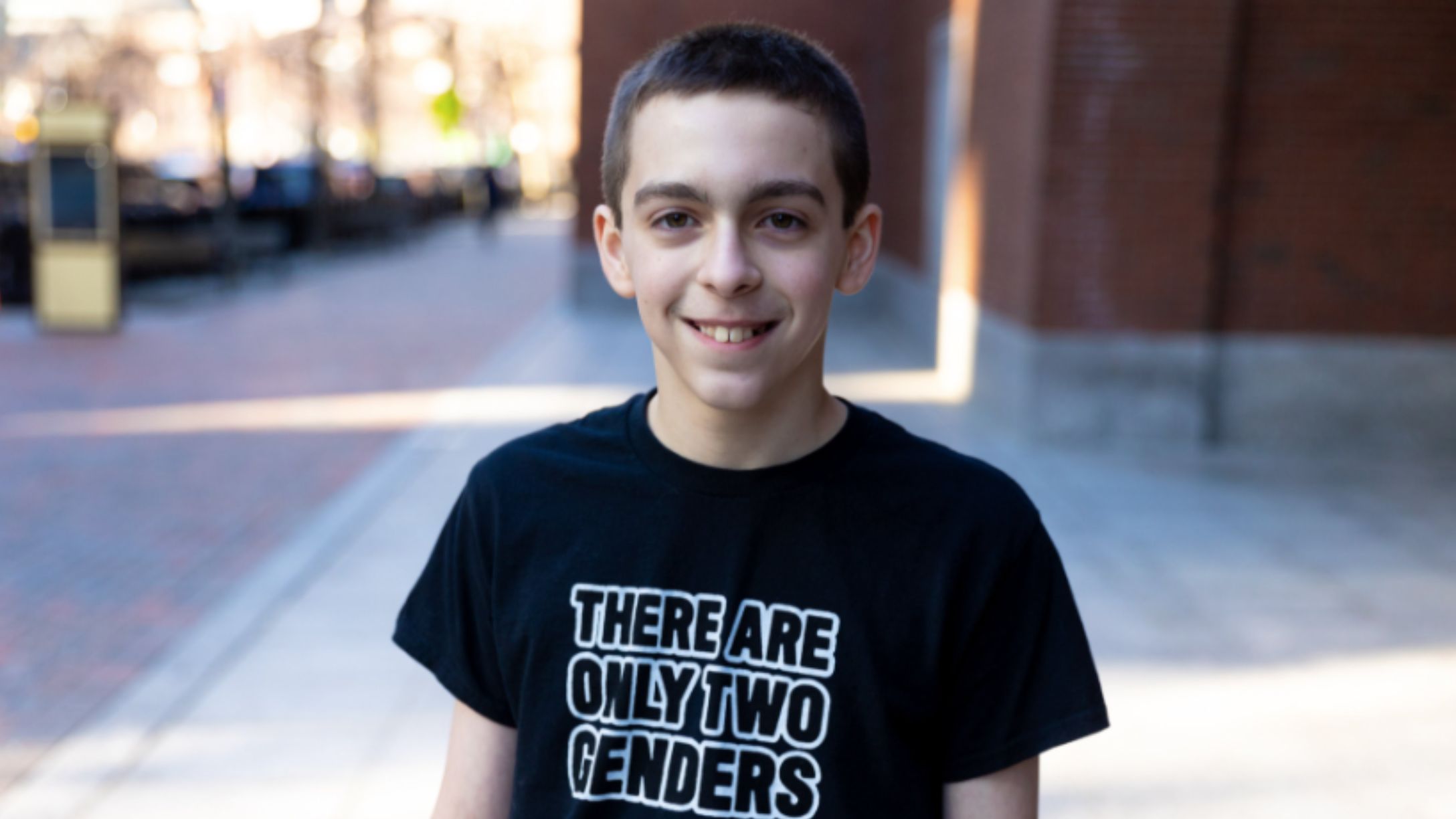
The middle school, preteen years are extremely important in terms of development. That time in our lives can have a significant impact on the types of adults we eventually become. For many children, this is the time they’re desperately seeking the approval of their peers and making concessions or setting boundaries for what they’re willing to do to get it.
It's a time during which children begin to form their identities in terms of beliefs and values as they simultaneously consider others. One middle schooler made national news recently when communicating his values caused a bit of controversy.
More from CafeMom: Seventh Grader Told Not To Wear 'Don't Tread on Me' Patch to School Because It's Racist
The middle schooler said he was punished for wearing a controversial T-shirt.
Liam Morrison, an eighth grader in Boston, Massachusetts, sued Middleboro Public Schools after they forbade him from wearing a T-shirt that reads, “There are only two genders,” Boston 25 News reported.
Liam wore the T-shirt in March 2023. Liam’s attorneys claim that throughout the course of the school day, both the principal and a school counselor pulled Liam out of class to ask him to remove the shirt.
Liam recounted the incident in court. “I was told to change shirts or I would not be able to return to class. I politely declined. As a result, I left school and missed the rest of my classes that day,” he explained.
More from CafeMom: Critics Fear Proposed Gender-Inclusive NYC Charter School Plans to 'Indoctrinate' Students
Liam argued that the lawsuit about free speech.
Liam says that the case was about more than a fashion choice. “This isn’t just about the shirt,” he said. “It’s about free speech. All students have a constitutional right to express their free speech without fear of being punished by school officials.”
Liam’s lawyers want an injunction issued so Liam can wear the T-shirt in school. But attorneys for the school district argue that the shirt goes against their educational mission of inclusivity. The school also stated that the T-shirt could potentially cause psychological distress to other students.
Liam’s counsel claims the school “waded into a controversial, cultural issue.” Attorney Dave Courtman said that while the school is welcome to do so, choosing sides in the debate crosses the constitutional line.
A GLAD spokesperson said nonbinary students have the right to feel safe at school.
GLAD, Legal Advocates & Defenders, filed documents in the case to provide the court with relevant information. “As the school said, the truth of the matter is they have a diverse student body. There are trans and non-binary students at the school, and they have as much a legal obligation to equal and positive learning environment for those students as to any other student,” said attorney Mary Bonauto of GLAD, Legal Advocates & Defenders. Liam believes he was punished for simply stating his opinion.
'Are their feelings more important than my rights?' Liam asked during a school board meeting.
In a school board meeting, Liam spoke saying, “I have been told that my shirt was targeting a protected class. Who is this protected class? Are their feelings more important than my rights? I don’t complain when I see PRIDE flags or diversity posters hung throughout the school. Do you know why? Because others have a right to their beliefs just as I do … This right is called the First Amendment of the Constitution.”
He continued, “I didn’t go to school that day to hurt feelings or cause trouble but I learned a lot from this experience. I learned that a lot of students share my view. I learned that adults don’t always do the right thing or make the right decisions.”
The courts ruled in favor of the school district.
Earlier this month, the First Circuit Court of Appeals ruled against Liam, according to Enterprise News. The court agreed with the school district’s argument. Liam and his attorneys plan to appeal the decision.
“Students don’t lose their free speech rights the moment they walk into a school building," Courtman said. "This case isn’t about T-shirts; it’s about a public school telling a middle-schooler that he isn’t allowed to express a view that differs from their own," he said.




